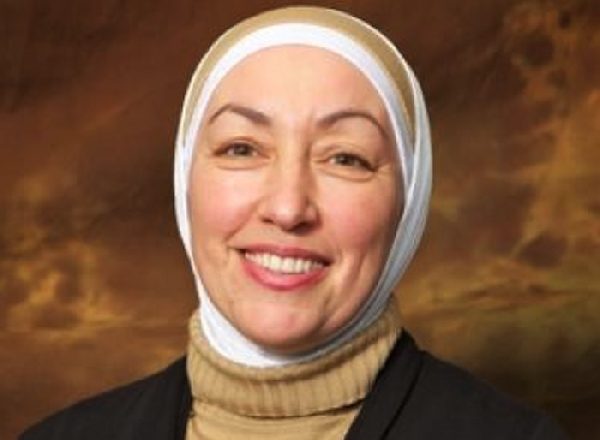
|
| Najah Bazzy |
CANTON — Najah Bazzy cried when a woman paid for her coffee at a Tim Horton’s drive-through last week. But within 20 minutes, the tears of joy turned into tears of horror. A man rolled down his window at a red light, spat at her and took off.
Bazzy, the founder and president of Zaman International, a humanitarian organization that provides food and clothing to the underprivileged, is a prominent Muslim American activist. She said she was shocked by the contrast between the two incidents.
“When the lady in front of me paid for my coffee, I felt wonderful; I cried,” she told The Arab American News.
“Kindness trumps,” Bazzy tweeted after leaving the coffee shop in Canton on Dec. 17.
But as she was heading to her organization’s center, she was attacked because of her hijab — she suspects — at the corner of Inkster and Cherry Hill Roads.
“I cried again,” she said.
This month has witnessed a spike in hate crimes against Muslim Americans after the San Bernardino shootings and Donald Trump’s proposal to ban Muslims from entering the United States.
This was not the first time Bazzy was the victim of hate.
Two months ago, while leaving a Panera Bread restaurant in Canton with her daughter, a man drove toward them and screamed, “Go home, you f**king Arabs.”
Bazzy, a fifth-generation American, whose ancestors immigrated to the United States 126 years ago, said she was “stunned” by the verbal assault.
She reported the Panera incident to the police. She said an officer came to the scene and was responsive and sympathetic, but there was not enough information to identify and locate the driver.
However, Bazzy did not report the spitting incident last week.
She said the suspect drove off and she did not capture his license plate number.
Former State Rep. Rashida Tlaib, campaign manager of Take on Hate, saluted Bazzy’s strength, but faulted her for not informing the authorities of the attack.
Tlaib urged documenting and reporting verbal and physical assaults motivated by hate.
“Those are crimes,” she said.
Tlaib said southeast Michigan is not immune to anti-Muslim hate crimes despite the large presence of the community.
“Ignorance doesn’t have a border,” she added.
Tlaib encouraged victims to share their stories to convey Muslim Americans’ struggle.
“People may not understand what it’s like to be a Muslim,” the former state representative said.
Fatina Abdrabboh, the director of the American-Arab Anti-Discrimination Committee in Michigan, also called for reporting such attacks to the police and civil rights groups promptly.
She added that victims should follow through with their complaints to make sure that hate attacks are investigated.
“Police are like other areas of government— bureaucratic,” she said. “They’re busy. They have to prioritize crime. If they don’t call you, call them back.”






Leave a Reply